According to a famed British constitutional scholar, Walter Bagehot, Queen Elizabeth II “could disband the army; she could dismiss all the officers . . .she could sell off all our ships-of-war and all our naval stores; she could make a peace by the sacrifice of Cornwall and begin a war for the conquest of Brittany. She could make every citizen in the United Kingdom, male or female, a peer; she could make every parish in the United Kingdom a ‘University’; she could dismiss most of the civil servants, and she could pardon all offenders.
Her Majesty’s actual rights as a Queen are only three:
- The right to be consulted by the Prime Minister
- To encourage certain courses of action
- To warn against others
The role of our monarch is extensive, stressful, and time consuming, in an age where instant gratification and rapid, fast paced ways of life seem to be the status quo. However, in stark contrast to the faced paced life of London’s streets, not one thing about the role of the Queen is executed in a rapid and fast paced way.
Throughout history, Kings and Queens have had strong links with the Armed Forces. Armies have defended and attacked territories on behalf of their rulers and have looked to them for guidance and inspiration in times of war and peace since ancient times. The Queen and the family which supports her have a substantial investment in the Armed Forces as both Head of the Armed Forces, Patrons and members of the Armed Forces themselves.
In the United Kingdom, The Queen’s title includes the words ‘Defender of the Faith’. This means Her Majesty has a specific role in both the Church of England and the Church of Scotland. As established Churches, they are recognised by law as the official Churches of England and Scotland, respectively. In both England and Scotland, the established Churches are subject to the regulation of law. The principle of religious toleration is fully recognised both for those of other creeds and for those without any religious beliefs.
In the earliest times, the Sovereign was a key figure in the enforcement of law and the establishment of a system of justice. Nowadays the Sovereign retains a symbolic role as the figure in whose name justice is carried out, and law and order are maintained, but is not involved in the actual administration of justice. The independence of the legal system, and the Sovereign’s role as the source of justice, have developed over many centuries. In late Anglo-Saxon times, the concept of the Sovereign as the ‘Fount of Justice’ grew in importance as it helped to ensure that a single system of justice prevailed over competing local, civil and ecclesiastical jurisdictions.
 As Head of State, Her Majesty the Queen is must remain in a strictly neutral position with respect to all matters political, where she is unable to vote or stand for election. However, the Queen does hold a key position in our nation, which is to fulfil the important and formal ceremonial roles in relation to the Government of the United Kingdom.
As Head of State, Her Majesty the Queen is must remain in a strictly neutral position with respect to all matters political, where she is unable to vote or stand for election. However, the Queen does hold a key position in our nation, which is to fulfil the important and formal ceremonial roles in relation to the Government of the United Kingdom.
The Queen In Scotland, Wales and Northern Ireland
The first Christmas Broadcast was delivered by George V in 1932 and since then has evolved into an important part of the Christmas Day celebrations for many in Britain and around the world.
The Christmas Broadcast is an intrinsic part of Christmas Day festivities for many people across the Commonwealth. Each Broadcast carefully reflects current issues and concerns, and shares The Queen’s reflections on what Christmas means to her and to many of her listeners. Over the years, the Christmas Broadcast has acted as a chronicle of global, national and personal events which have affected The Queen and her audience.
Diamond Jubilee Highlights


